Lessons
Hundreds of lessons that are hands on, correlated to recent standards and teach core subject areas.
Fibers From Nature Lesson
Not only do plants provide us with many delicious edible products, they also produce fiber for clothing. This lesson introduces students to those non-edible products known as natural fibers with an emphasis on cotton. Students discover where cotton is produced on a national and global scale as well as what products are connected to what fibers.
View LessonCitrus Math Lesson
Economists assemble a wide array of statistical information and analyses of that data about an agriculture industry, citrus. Students will put their math minds to work by solving real-world citrus problems and depicting real-world data.
View LessonCitrus in Florida
Citrus in Florida will examine the development of oranges and their history here in Florida. Students will discover the significant role citrus plays in Florida’s economy, the impact citrus had on Florida’s history while learning about geography.
View LessonWhat’s Bugging Me?: Integrated Pest Management Part 1
Pest management is required for all types of gardens. Integrated Pest Management (IPM) is using more than one practice to control and prevent pests. In this lesson students will learn about the different practices that can and are being used in agriculture today. Students will test the effectiveness of some of the practices by designing their own bioassay experiments.
View LessonSTEMming Up Plant Nutrients
In this lesson students will identify and describe the functions of essential plant nutrients. This material assumes a basic knowledge of plant biological functions and fertilizer. If you feel your students need more background information see: www.nutrientsforlife.org
View LessonSoil Moisture and Soil Temperature
The lesson entails having students measure, record, chart, and evaluate the soil moisture and temperature of school gardens.
View LessonPlant Propagation
Plant propagation is the process of creating new plants from a variety of sources: seeds, cuttings, bulbs and other plant parts. There are several methods of plant propagation used in com-mercial horticulture besides planting seeds. This lesson will introduce the industry skills of plant propagation, such as graft-ing, budding, rooting cuttings, seed scarification, air layering and tissue culture. Students will also research on the internet about several types of plant industries, and gain an appreciation for how economically important they are.
View LessonPlant Hormones and Tropic Responses
There are many hormones in plants and they all play different roles. In this lesson students will learn about hormones such as ethylene, gibberellins, cytokinin, absiscic acid and the application of hormones in commercial horticulture.
Tropic responses in plants are those responses to light, gravity and touch. In this lesson students will learn about the different tropic responses and set up experiments to demonstrate hormone effects and plant responses to stimulus. Data will be collected and summarized in tables and graphs.
View Lesson“Phun” with Photosynthesis
Students will use light-sensitive beads to observe how sunlight can cause rapid physical and chemical changes in what it strikes. They will calculate the total surface area of leaves exposed to the sun on a saw palmetto plant. They will calculate how many photoelectric cells would equal the solar energy capturing ability of the saw palmetto plant they measure. The students will then design and make a tree using photoelectric cells as leaves.
View LessonPest Management Safety: Integrated Pest Management Part 2
Pest management is needed in order to have a healthy and productive garden. There are many options for pest control. This lesson will show students the importance of reading a pesticide label and what information they can find. Students will also be exposed to safety equipment that may need to be used when applying a pesticide.
View Lesson
